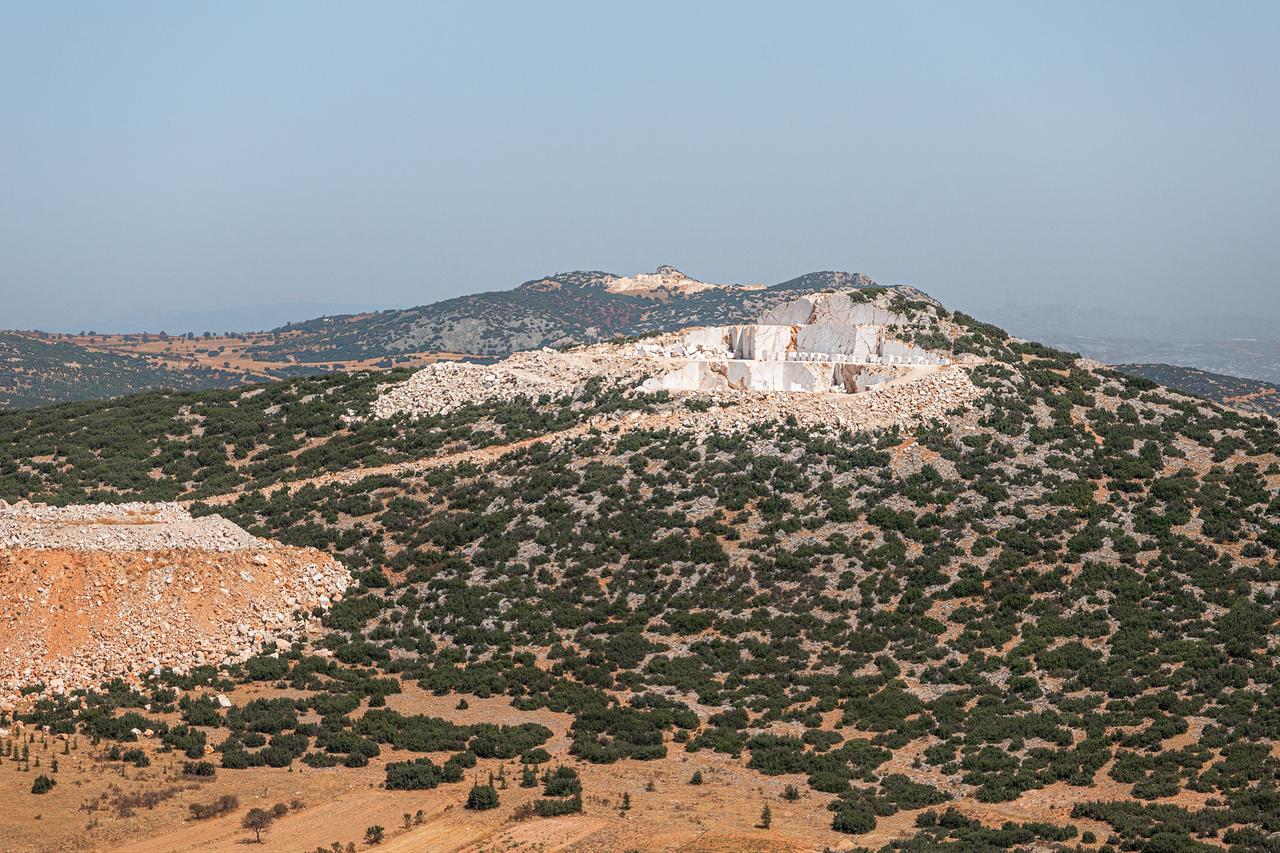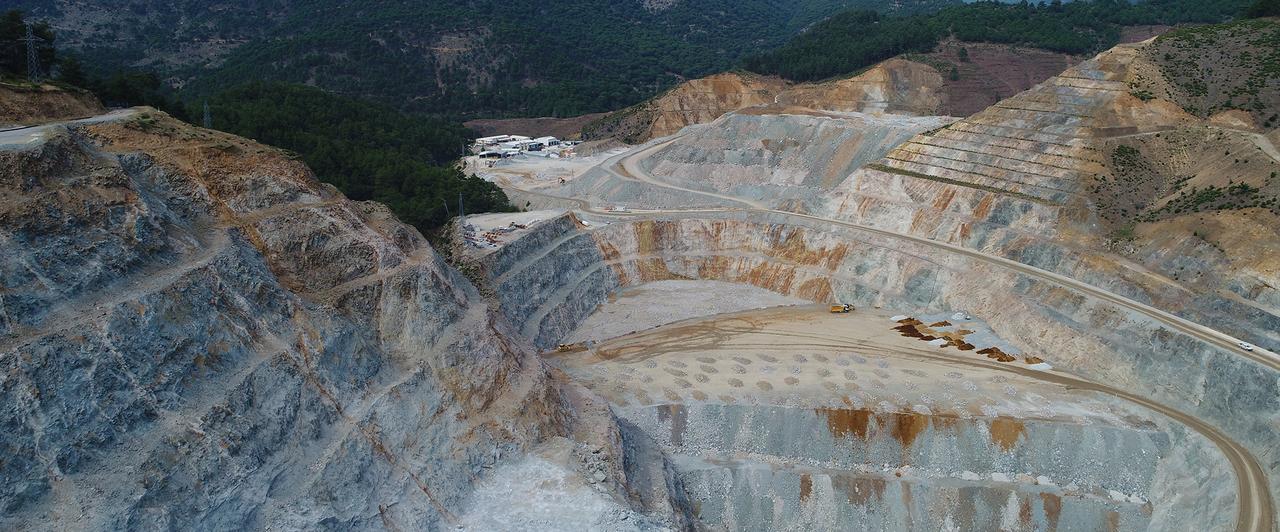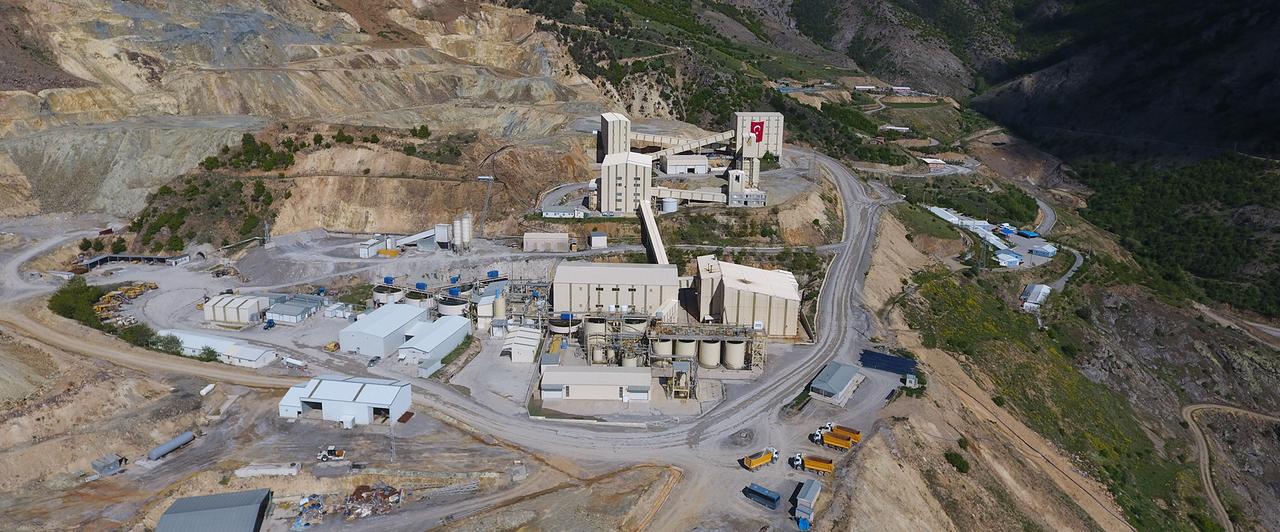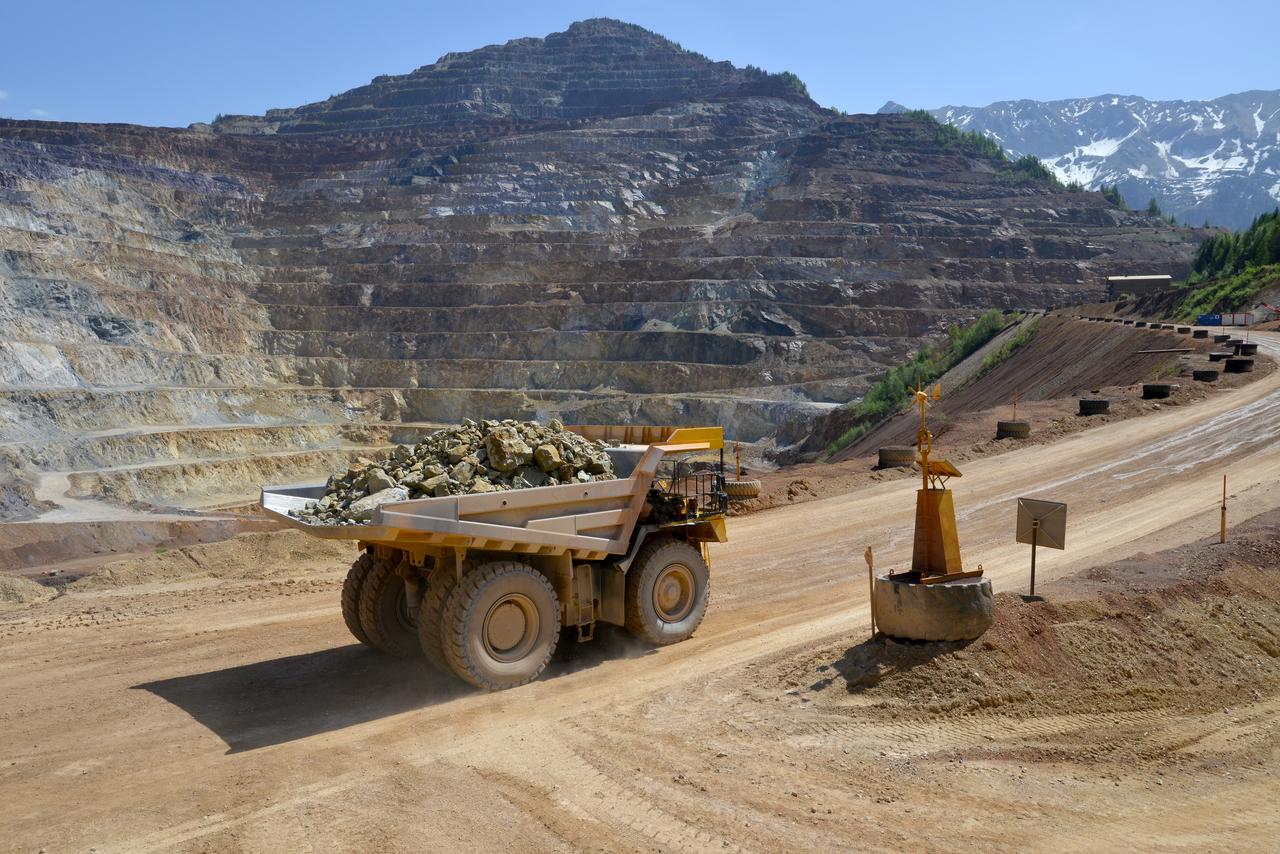
Türkiye holds an estimated $3.5 trillion worth of mineral reserves beneath its soil, yet despite this vast potential, the country continues to post a $20 billion trade deficit from mining imports, Turkish Miners Association (TMD) Chairman Mehmet Yilmaz said Tuesday.
"It is unacceptable to leave this potential idle while posting an annual foreign trade deficit of $50 billion–60 billion," Yilmaz argued, emphasizing the country’s underground wealth remained underutilized.
"Mining has always been a locomotive sector in advanced countries such as the United States, Canada, Australia, Russia, China and India. When we look at our underground potential, activating mining is inevitable," he added, stressing that mining should be elevated to a leading role in the national economy.
Among the mine reserves, Yilmaz highlighted that Türkiye is home to 73% of the world’s known boron reserves, yet exports are mainly in raw form. Yilmaz said refined boron products sold to industries such as glass, fertilizer, batteries, and defense could add $2 billion annually to export revenues.
Similarly, exporting processed marble rather than raw stone could increase revenues by $1.5 billion each year.
Türkiye’s proven gold reserves stand near 5,000 tons but could reach 10,000 tons with updated surveys, Yilmaz also highlighted. Since 2001, Türkiye has produced 520.5 tons of gold. The remaining 5,980 tons of reserves are valued at around $461 billion at current market prices.
According to the U.S. Geological Survey, the world’s untouched gold reserves are estimated at around 57,000 metric tons, while Turkish mining firm Zenit puts Türkiye’s gold potential at between 6,000 and 7,000 tons.

Yilmaz also pointed out that despite the reserves, Türkiye remains highly dependent on imports of gold. Between 1995 and 2024, the country imported more than 5,000 tons of gold, averaging over 170 tons annually.
In 2024 alone, Türkiye imported 222 tons of gold worth $17.1 billion, while domestic production stood at just 32.2 tons, worth about $2.5 billion.
According to Turkish central bank data, Türkiye’s non-monetary gold imports reached $20.56 billion on an annualized basis in June, making it one of the largest contributors to the current account deficit after energy imports.
According to the World Gold Council, Türkiye is the fourth-largest country in global jewelry gold demand, with annual demand totaling 42 tons.

Türkiye plans to add 60 gigawatts (GW) of renewable capacity by 2035 within the Energy and Natural Resources Ministry's Renewable Energy Roadmap, a target that will further increase demand for minerals such as lithium, copper, zinc, aluminum, and manganese, Yilmaz continued.
“While turning to green energy, mining activity will need to increase six to nine times. We must activate this potential,” Yilmaz said.
Pointing to Türkiye’s location between Europe and Asia, Yilmaz said, “Türkiye, with its rich geological diversity and strategic location, could become a critical mineral corridor.” He added that developed economies such as the United States, Canada, Australia, Russia, China and India have always treated mining as a “locomotive sector.”
“Mining has always been a locomotive sector in advanced countries. For Türkiye, activating its underground potential is inevitable,” he said.

Yilmaz addressed environmental concerns as the main reason for the underutilization of Türkiye’s vast mineral reserves. He noted that although the country’s total land area covers 78.3 million hectares, only 7.7 million hectares are under mining exploration licenses, and just one in every 200 exploration licenses leads to an active operation. Overall, the land under operating licenses accounts for no more than one-thousandth of the country’s territory.
He stressed that claims of large-scale deforestation caused by mining were exaggerated. “Only 0.038% of forest areas are used for mining activities. Misperceptions on this issue should not be exploited against national interests,” Yilmaz said.
Under Turkish law, rehabilitation and reforestation are mandatory for companies after mining activities conclude. To date, 11,325 hectares of land have been rehabilitated, which Yilmaz highlighted as evidence that environmental recovery accompanies industrial use.
He also referred to disputes over mining in agricultural areas, particularly olive groves, following a law amendment passed in the Turkish parliament last month that permits mining activities in such areas of the Aegean cities.
Yilmaz argued that other developments, such as industrial facilities, housing projects, and highways, often cause comparable levels of disruption.
“The olive tree is sacred, but as in other parts of the world, activities can proceed within defined parameters. Optimizing this balance is critical for the country’s interest,” he said.